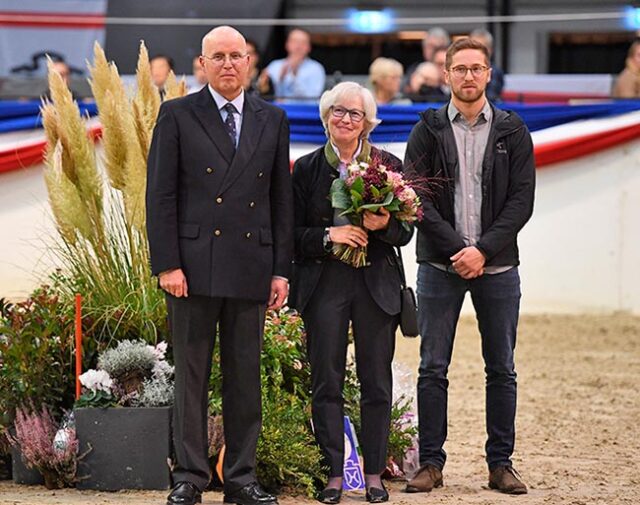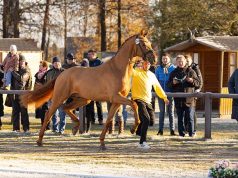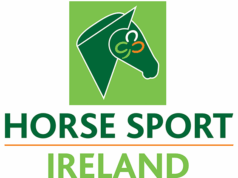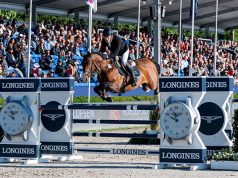
By Adriana van Tilburg
Photography: Janne Bugtrup
When you enter the office of Dr. Thomas Nissen it becomes very clear how breeding has evolved in the last 50 years. It is an intimate museum that immediately conjures a sense of awe when looking at all the paintings and photographs. There is no doubt that Dr. Nissen’s presence as breeding director for 32 years has created an important legacy.
It’s been a period when Holsteiner horses ‘ruled the world’, where breeding changed a ‘pure’ Holsteiner into a ‘global’ commodity. A time where Cassini I and Corrado I provided a jumping advertisement for the Holsteiner horse under the saddle of Franke Sloothaak; Fein Cera became the best jumping horse of the 2002 World Equestrian Games in Jerez de la Frontera in the hands of Peter Wylde; Cumano became individual world champion in Aachen 2006 with Jos Lansink; Diarado was crowned as champion of the 2007 stallion approvals; and Casall jumped clear rounds in international classes around the world and became a first-class sire. But, who is Dr. Thomas Nissen? Where has his journey taken him, and what does the future hold for Holsteiner breeding within the sport horse industry?
Integrity at the forefront
Q Can you tell us more about yourself and your journey to becoming the breeding director of the Holsteiner Verband?
I come from the area of East-Holstein where my parents had a farm. My mother was a child refugee as my grandparents had a farm in East Prussia and were breeding horses on a large scale. So, through my mother, I have a distinct connection to East Prussia and the Trakehner horses here.
After graduating from high school I did an agricultural apprenticeship, studying agricultural sciences in Kiel. As I was riding at that time, and had already bought and sold two horses, I happened to buy a filly, Nachtbluete, by the Thoroughbred Maestose xx. I took her as a three-year-old to the mare registration, and she subsequently became a State Premium mare.
I had another mare by Fokus I, who was also invited to go to the elite mare show, so I now had two good mares. I decided to use Fridericus for Nachtbluete, and she produced a wonderful filly. This filly eventually became a very successful jumping horse in Rhineland where she also became a champion with junior riders. Later I bred Nachtbluete to Calypso II and this would become the outstanding broodmare Zivia (Stamm 6619). Nachtbluete produced many foals, and I kept the full sister to Zivia, Wildbluete.
During this time I was still studying and actually had a goal to become a farmer, but when I had to write my university thesis I chose animal breeding, specifically pig breeding because this is what we did at home. When I suggested this to my professor he looked at me and said he thought I should write about a horse-related topic as he knew I had some expertise with breeding horses. He was very supportive and, in the end, the thesis was very good, so he told me to continue in science and pursue a doctorate, and he actually paved the way for me going to the Holsteiner Verband.
He accompanied me to a meeting with my predecessor, Gerhard Gramann, and we continued with the subject of the mare performance test. I then added other Holsteiner Verband-related topics to my final work. I was already a Holsteiner breeder, but this is how my connection grew, as I was well educated in Holsteiner bloodlines.
At the time, my parents’ neighbour was the well-known Trakehner breeder and rider Veronika von Schöning and I was already using her indoor arena for riding, but also helping in the preparation of stallions for the Trakehner approvals. For many years I presented stallions in Neumünster, so I learned how it works to be an exhibitor. It was because of this work for Veronika von Schöning that I knew many Trakehner breeders and learned a lot about the bloodlines. However I was breeding Holsteiners and that was where my heart lay... To read the complete article you need to be a subscriber
CLICK HERE TO SUBSCRIBE TO BREEDING NEWS
SUBSCRIBERS CAN READ THE COMPLETE ARTICLE BY LOGGING IN AND RETURNING TO THIS PAGE



